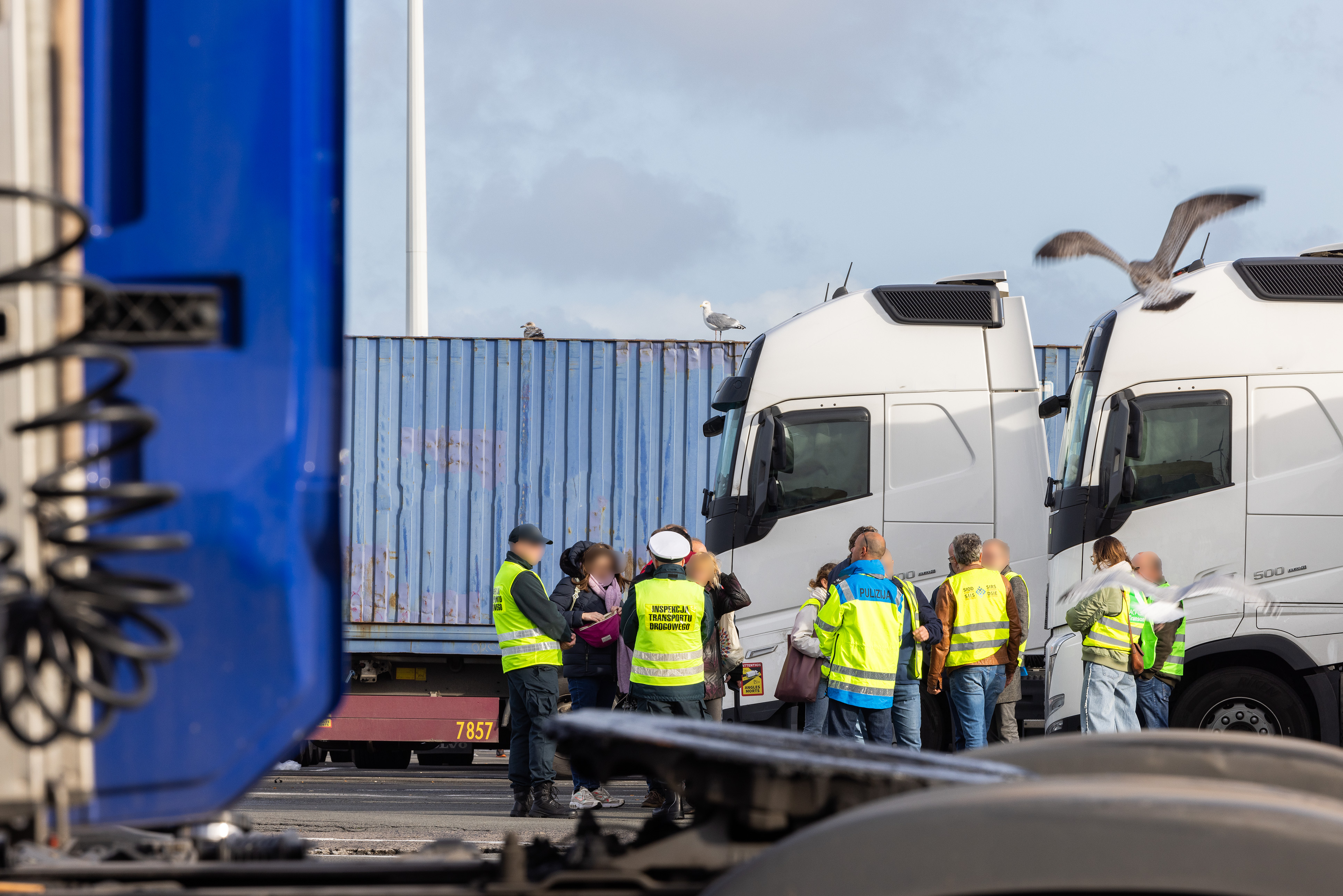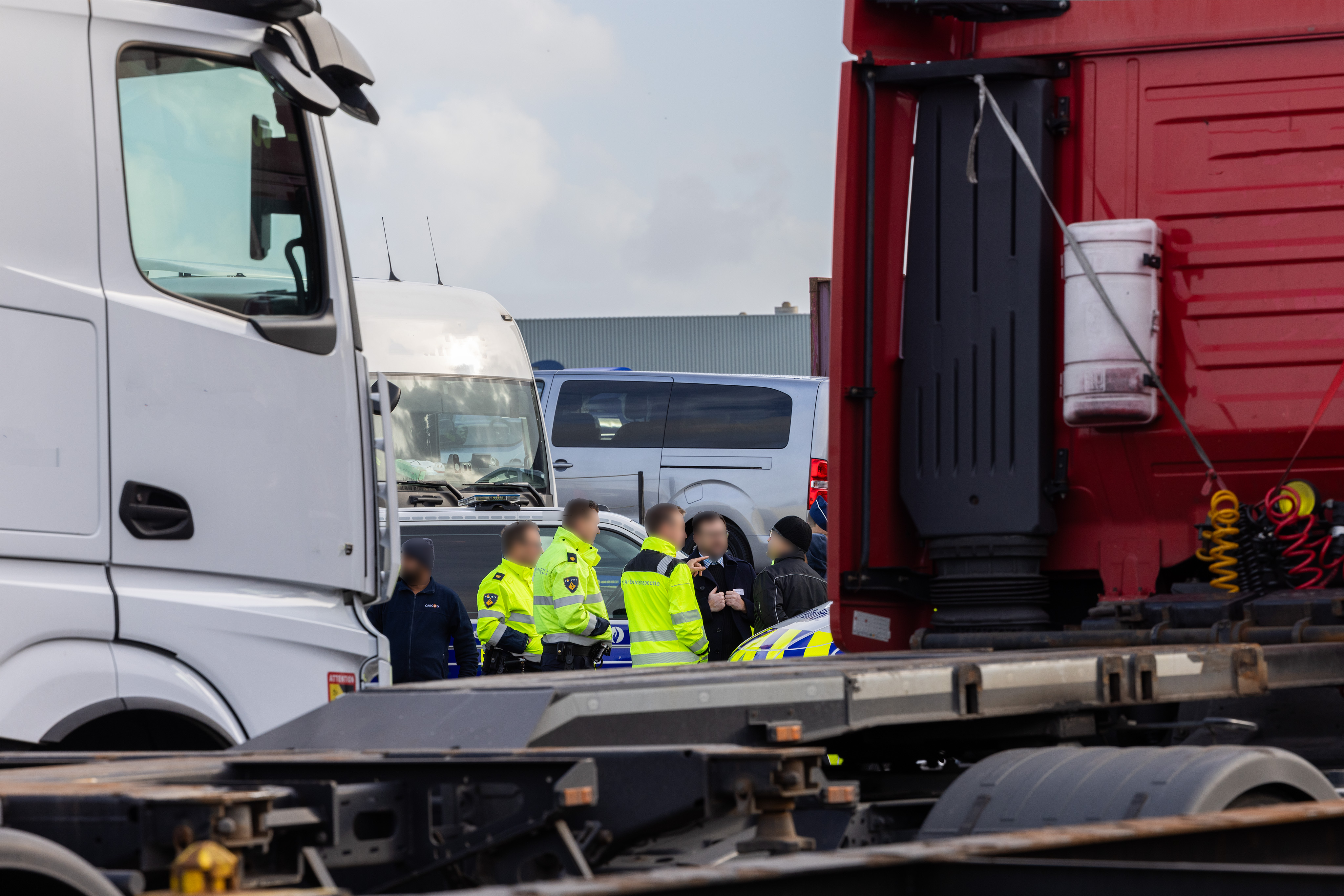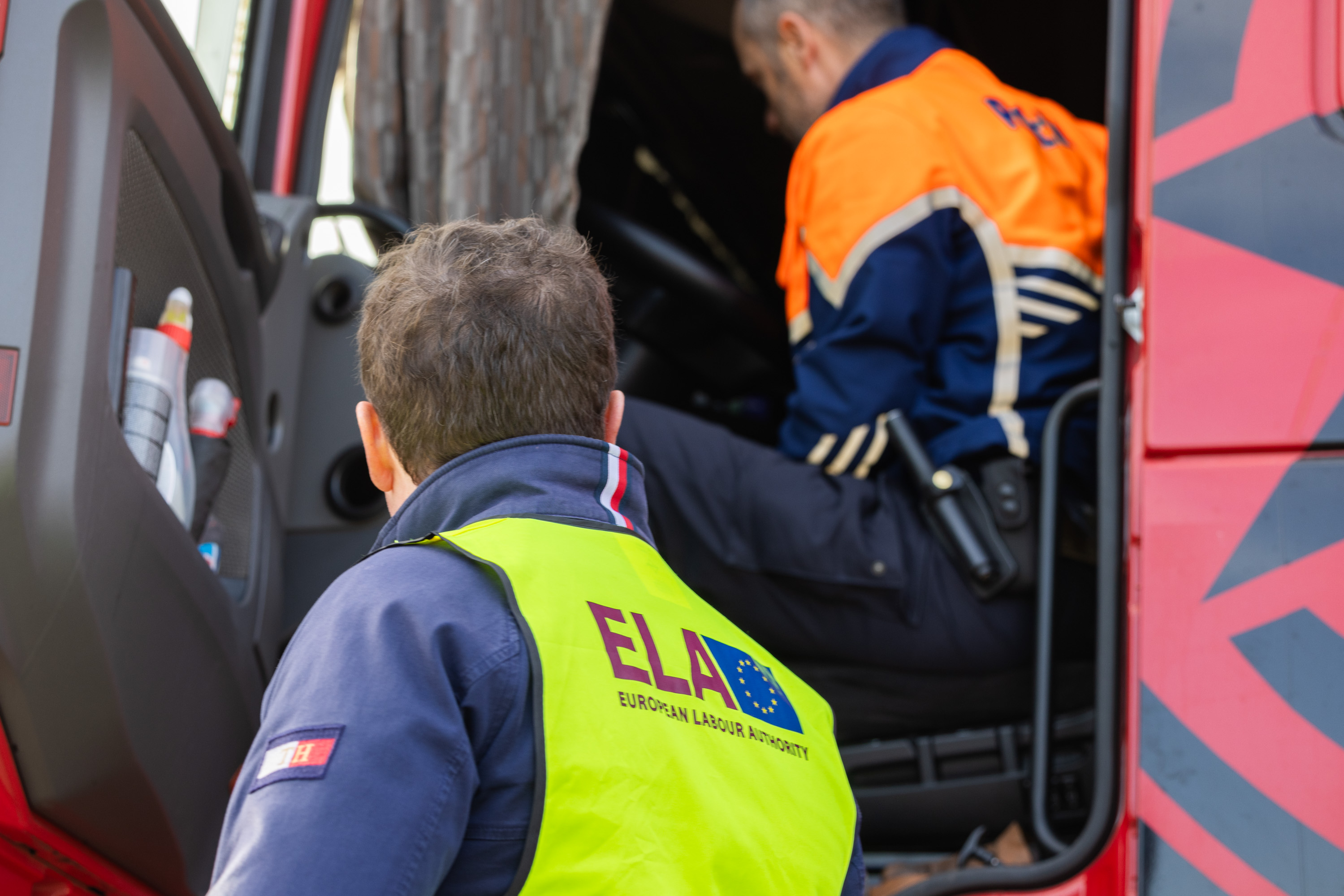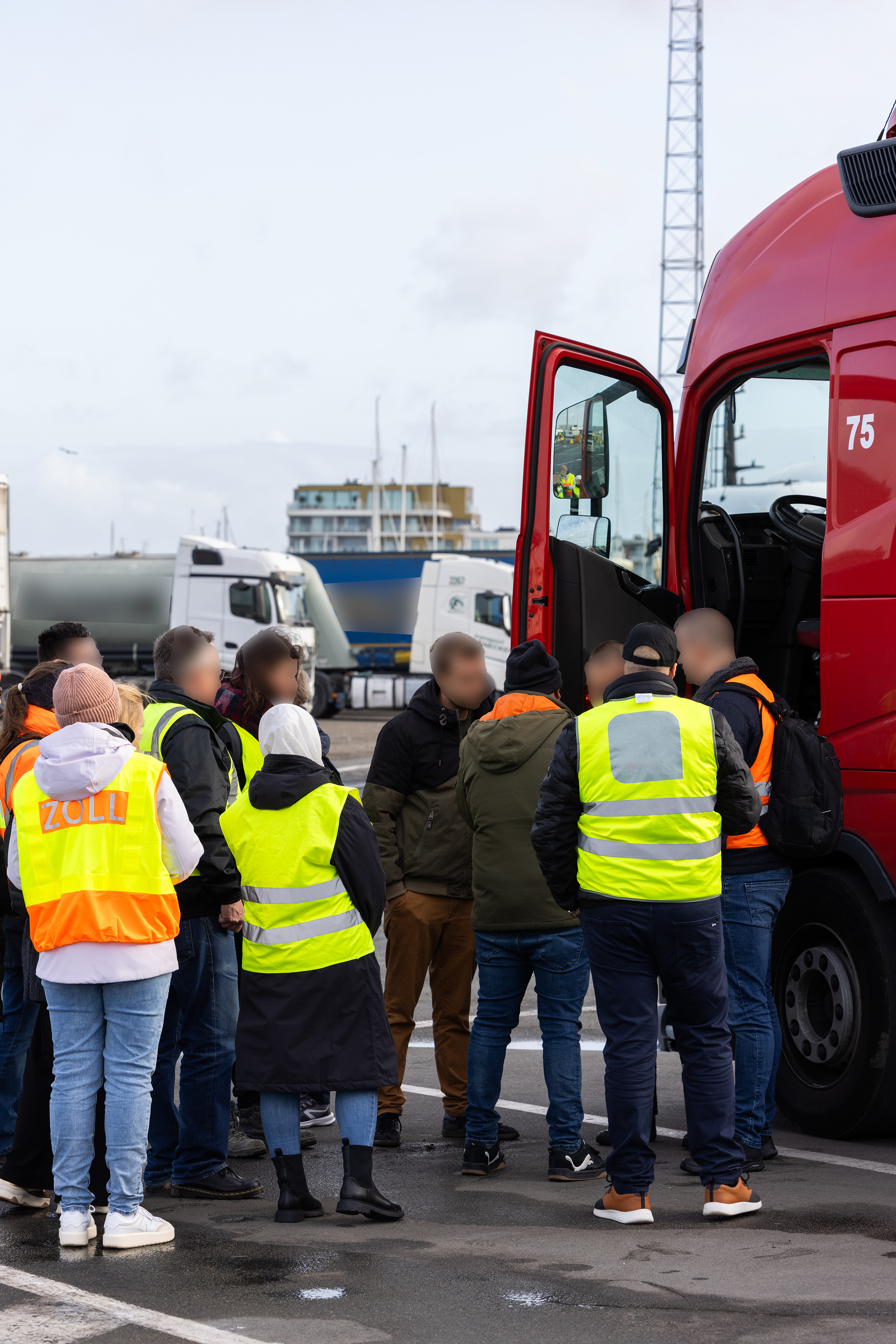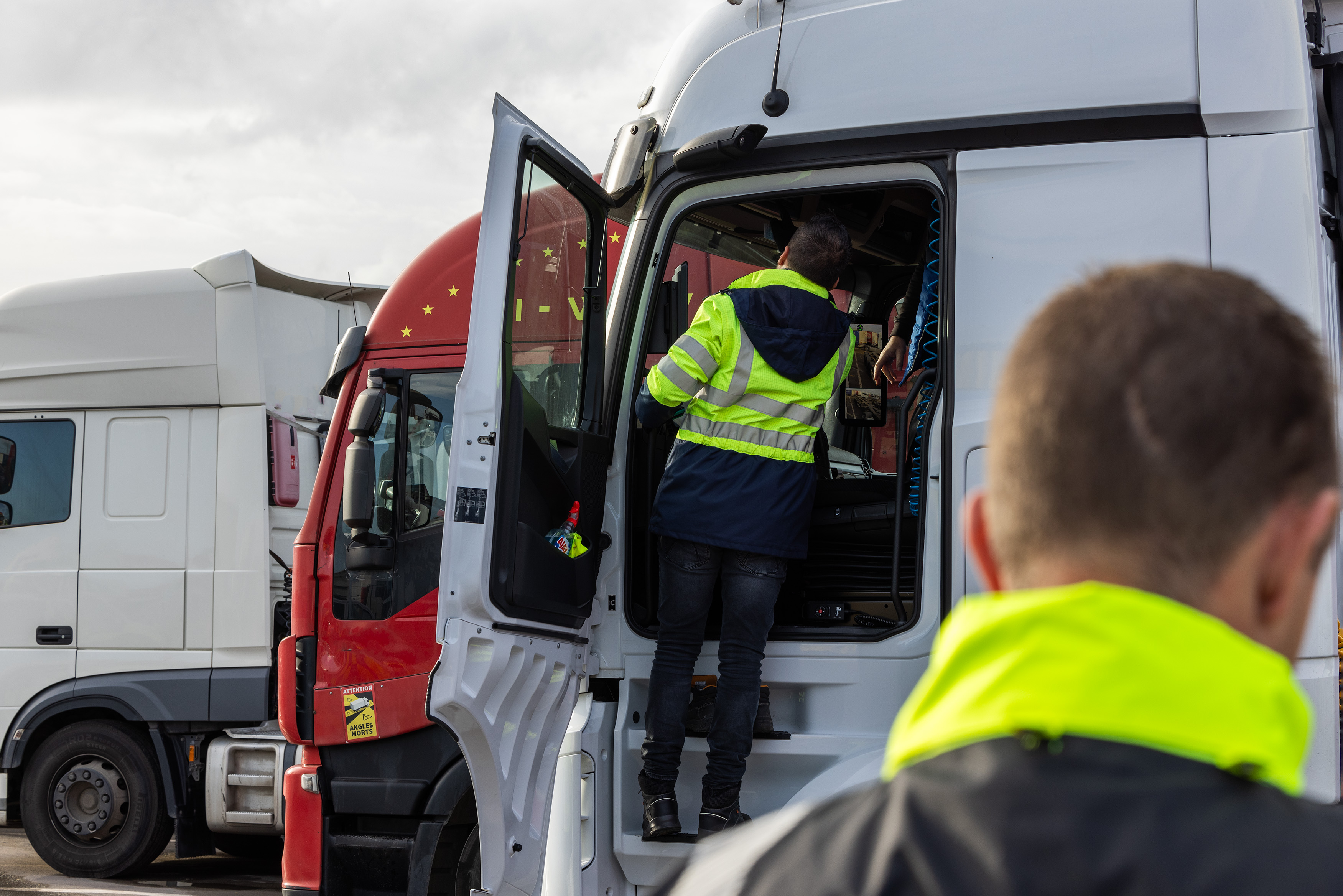
A large joint action in road transport took place in 12 Member States from 11 – 17 November with support of the European Labour Authority (ELA) and in partnership with the European Roads Policing Network (ROADPOL). Belgium, Bulgaria, Cyprus, Greece, Hungary, Italy, Lithuania, Latvia, the Netherlands, Romania, Slovenia and Slovakia hosted inspections. In total, 302 inspectors from transport, police, labour and many other national authorities joined forces with observers from 17 Member States: Austria, Croatia, Cyprus, Czechia, Denmark, Germany, Greece, Estonia, Hungary, Italy, Lithuania, Latvia, Malta, the Netherlands, Poland, Romania and Slovenia.
The ELA week of action in road transport in numbers1:
- 690 vehicles checked;
- 377 infringements identified;
- more than EUR 230,000 fines in total;
- 73 “clean” checks2;
- 302 enforcement officers involved;
- 20 different Member States involved;
- 96 observers from other Member States and 18 ELA staff.
Most inspections focused on compliance with driving and resting time.
The uncovered infringements against road transport regulations resulted in total fines of more than EUR 230 000. Apart from driving and resting time, infringements concerned the use of tachograph including manipulation of tachograph, roadworthiness, load securing, missing posting declarations and other documents (e.g. community license). Further investigations of the irregularities mentioned above will continue.
“Drivers have the right to spend their weekly rest in a suitable place - not in the cabin of the truck. They have the right to sleep in a real bed and have access to adequate sanitary facilities. We have seen for instance in Belgium, drivers sleeping in inhumane conditions. We are working together with the EU countries to find ways to stop such practices affecting the working conditions of drivers, and also to make it possible for companies to compete correctly in the EU single market"
The Weeks of Action in Road Transport will continue in 2025 with the aim to strengthen the efforts to promote fair working conditions and road safety in this very transnational economic sector.
1 Information on results not finalised by all Member States at the time of publication; the inspection in LV did not take place within the Week of action but on 21 November.
2 Number of “clean” checks provided by 5 Member States; the methodology of “clean” checks may differ among Member States.
Example cases
Slovakia
During an inspection in Slovakia, a driver was found to have committed 21 violations of driving and resting time regulations over the past 28 days. Another driver had manipulated the tachograph. The inspection in Slovakia was organised by a regional office of the Slovak National Labour Inspectorate, the Slovak Traffic Police with the involvement of other actors. Inspectors from Austria, Czechia, Hungary and Poland participated as visiting inspectors.
Belgium
The joint inspection in Belgium, which took place in the port city of Zeebrugge, confirmed a persisting irregularity regarding weekly rest in the cabin of the vehicle. It was found that 51% of the drivers from 168 controlled lorries took their weekly rest in their trucks. Coordinated by the Belgian Police, inspectors from 14 institutions took part on the Belgian side, along with visiting inspectors from 11 institutions from Germany, Malta, the Netherlands, Poland and Romania.
Greece
The Hellenic Labour Inspectorate (HLI), Hellenic Traffic Police as well as visiting inspectors from the General Inspectorate of Road Transport from Poland made another joint inspection on a highway north of Athens. Anastasios Skouras, HLI´s Labour Inspector, coordinated the inspection:
"We had two different inspection teams. One team focused on national trucks and the persistent problem with underdeclared work of truck drivers. Based on the checks from tachograph data, drivers´ logbooks and ERGANI IT system containing working time of every worker, we could see immediately the number of overtime hours. Concerning the international trucks, we were amongst others identifying the level of risk of the existence of letterbox companies, by gathering information through questionnaire about habitual place of work, residence of the driver and manager of the company as well as about the operational centre the driver is using."

